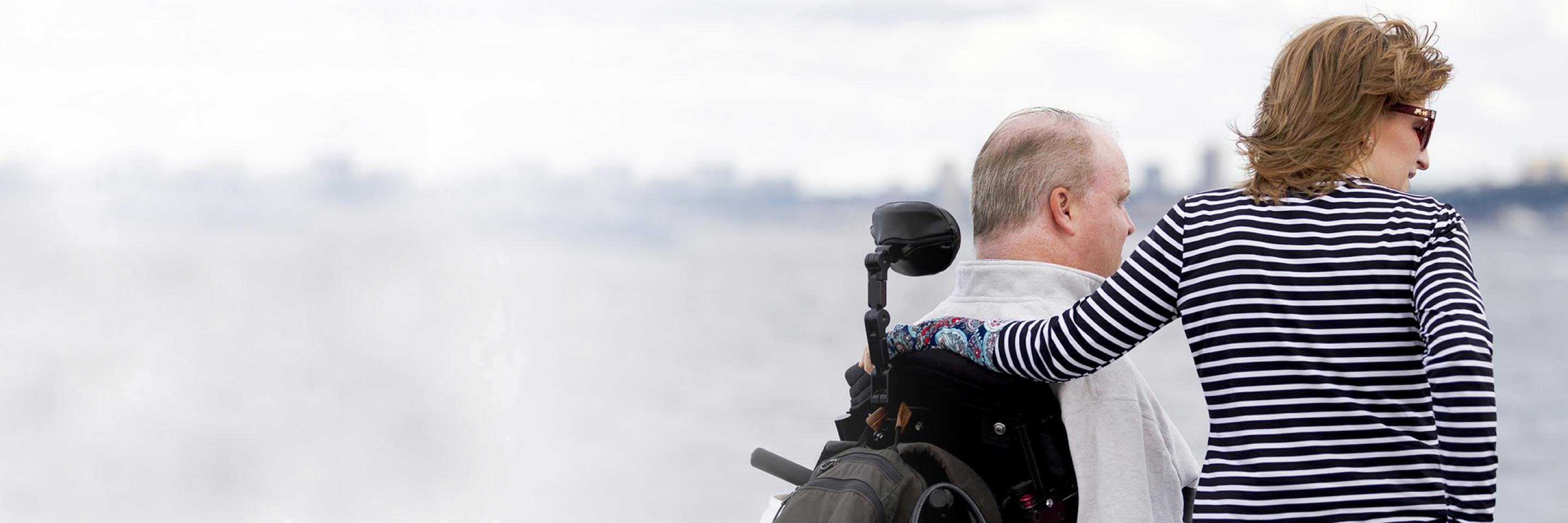
Resilience and Disability in the Time of COVID-19
People with disabilities need our help now more than ever!
Hear from Our Experts

Participate in Research from Home
Stay connected to us.
All you need is access to a computer or phone.
Resilience Now: You can help people with disabilities in the time of COVID-19
While we have all witnessed many losses, we have not lost our ability to take action. Your donation to the Resilience Fund at Kessler Foundation helps those most vulnerable to today’s challenges.
Trending @ KesslerFdn
Are you interested in learning more about the work we do, want to see what our researchers have been up to, or have concerns about the impact of COVID-19 on you and your family? Check our blog for the latest Foundation news.
-
nTIDE December 2020 Jobs Report: COVID Surge Slows Recovery for People with Disabilities - Fri, 01/08/2021
-
nTIDE COVID Update November 2020: Surge Takes Its Toll on Jobseekers with Disabilities - Fri, 12/18/2020
-
nTIDE COVID Update October 2020: Jobseekers with Disabilities Cope with Uncertainties - Tue, 11/24/2020
-
September 2020 COVID Update: Americans with Disabilities Strive to Stay in Labor Market - Fri, 10/30/2020
-
August 2020 COVID Update: Shift to Actively Looking for Work May Signal Slowing Recovery - Thu, 09/22/2020
-
COVID-19 Impact Survey Yields Unexpected Findings for Individuals with Progressive MS - Wed, 09/02/2020
-
nTIDE June 2020 Jobs Report: Numbers up but COVID Spikes May Impact Economic Recovery - Thu, 07/02/2020
-
nTIDE June 2020 COVID Update: Numbers Improve for Workers With and Without Disabilities - Thu, 06/25/2020
-
Enabling Optimal Care After Spinal Cord Injury - An Online Curriculum for Personal Care Assistants - Wed, 06/16/2020
-
Helping Veterans Adapt in the COVID Economy: The GI Go Fund Focus on Employment - Mon, 06/08/2020
-
The COVID Economy: Challenges and Opportunities for People with Disabilities - Mon, 06/08/2020
-
Transitioning from the Criminal Justice System in the COVID Economy: the FAIR project - Mon, 06/08/2020
-
Coordinating Care from Detention to Release to the Community: The Women’s Project - Mon, 06/08/2020
-
nTIDE May 2020 Special Report: Workers with Disabilities in the COVID Economy - Wed, 05/20/2020
-
Coping with Multiple Sclerosis during the COVID-19 Pandemic - Mon, 05/18/2020
-
Kessler Staff Share Stories and Tips for Successfully Working from Home - Fri, 05/01/2020
- Optimizing Healthy Sleep Habits during the COVID-19 Pandemic - Wed, 04/29/2020
-
Caregiving for Persons with Traumatic Brain Injury while Sheltering in Place for COVID-19 - Fri, 04/24/2020
-
Social Distancing with MS or a TbI: Difficulties with Being Too Close and Too Far - Wed, 04/15/2020
- Moving Research Forward While Staying Home: The Past, Present, and Future of Rehabilitation Research - Tue, 04/15/2020
-
COVID-19 Employment Resources - Tue, 04/14/2020
- COVID-19 and Spinal Cord Injury: Minimizing Risks for Complications - Tue, 04/07/2020
-
nTIDE March 2020 Jobs Report: COVID-19 Effects Not Yet Seen in Jobs Data for Americans with Disabilities - Fri, 04/03/2020
-
Managing Children with Autism while Sheltering from COVID-19: Advice for Parents - Thu, 04/02/2020
- How governments should maintain disability services during the pandemic - Thu, 03/26/2020
- You, Kessler Foundation, and COVID-19 - Thu, 03/19/2020